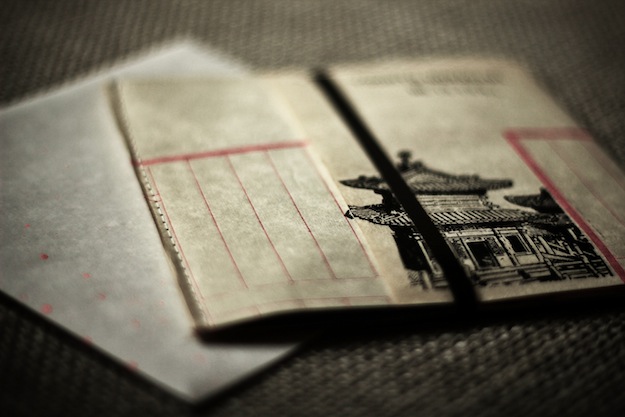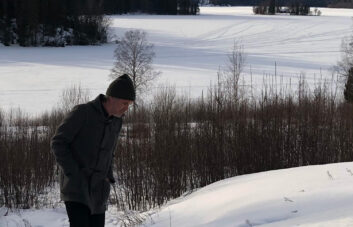Discovering Yoshito Murakami‘s “Mu To Eien” LP happened by pure chance while browsing the Youtube channel of Truants’ favourite Bandshell – a very happy accident, as this is perhaps one of the most interesting and rewarding ambient releases of the year so far. From what little information is available about Yoshito Murakami, we know that he is from Amagasaki, Japan and this is his first full-length work, released by Timed Released Sound (a label which specialises in electroacoustic and ambient music). The stated aim of the project was to create a series of compositions which would reflect the relationship between Japan’s history, old traditions and natural beauty with its more recent past characterised by, among other developments, rapid industrialisation and technological progress.
The album opens with the brief, plaintive ambient sketch “Prelude for ‘Mu To Eien’”. The mood is further set by the melodic drones and minor-key piano of the aptly-named “Light of Shadow”. On “Mizu No Shimidashi” similar dronescapes are joined at the crescendo of the piece by the gentle plucking of an acoustic guitar. “Jomon Sea” signals a change in tone from the tranquil opening – in one of the album’s highlights, a machine-like hum and distinctly “electronic” sheets of sound hang over a recording of what sounds like surf washing over a beach. The piano in “Quiet Summer, White Mountain” has a more central presence and is more assertive than earlier in the album, an emotional peak of sorts. What follows as the listener is guided through various landscapes and locales by Murakami is more evocative deployment of drone, piano, guitar, digital fuzz and field recordings, all masterfully and meticulously balanced with each other.
The packaging of the deluxe version of this already limited release – “antique Japanese paper ephemera, old fold out tissue maps of Japanese locales, Meiji era apothecary ledger pages, and a double sided insert printed on bamboo veneer” enclosed alongside cherry blossoms in an envelope of vellum, is quite extravagant and some may argue that it represents a peak form of the obsession with musical collectibles. However, these objects (a video showing them in detail can be seen in this video, while a more sparse version of the album is still available here) most crucially provide aesthetic and historical context for the music contained within – in particular the 8mm film of the earthquake which struck Japan in 1923. This album being a mediation on the tension between tradition, nature and industry, one needn’t make too much of a logical jump to make a connection between that event and the tragic events in Fukushima, which were caused by a natural disaster but amplified by human-made factors. Details such as these lend added weight to an already impressive piece of work.
Stream: Yoshito Murakami – Quiet Summer, White Mountain (Time Released Sound )




